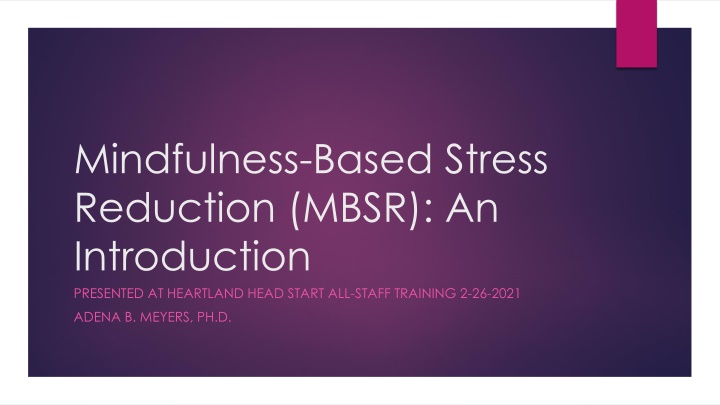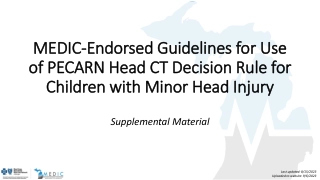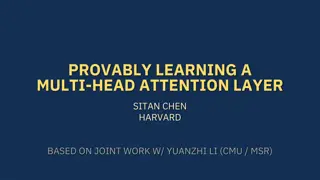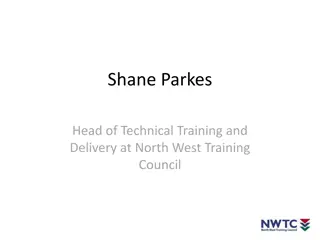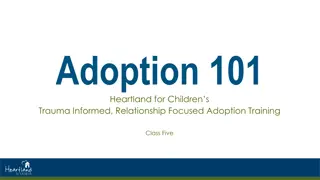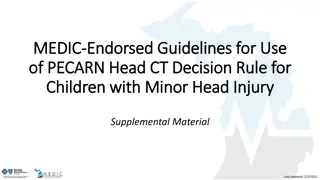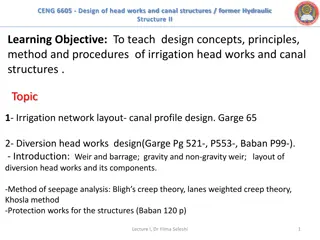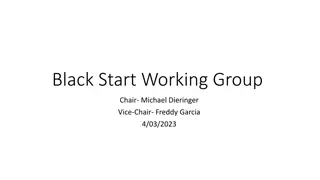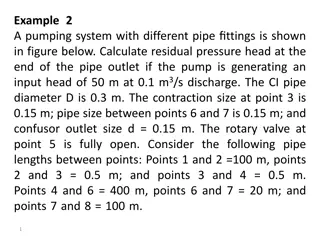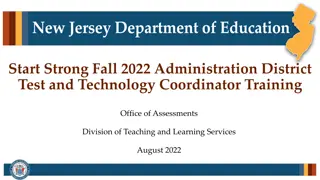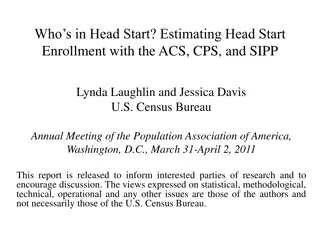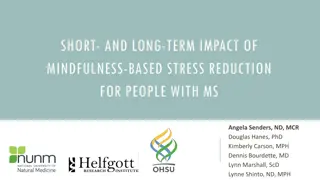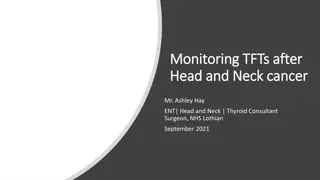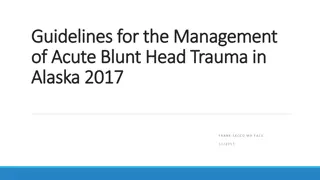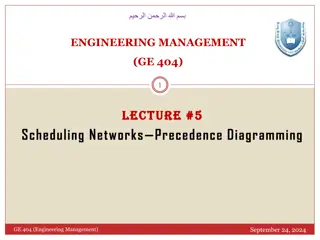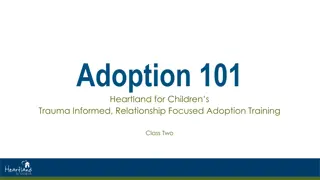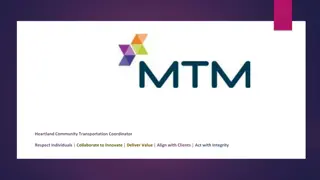MBSR Introduction at Heartland Head Start Training
Adena B. Meyers, Ph.D., shares an introduction to Mindfulness-Based Stress Reduction (MBSR) at the Heartland Head Start all-staff training on 2-26-2021. Learn about the techniques and benefits of MBSR in managing stress and improving well-being. Gain insights into how mindfulness practices can enhance overall mental health and resilience, offering practical tools for daily life.
Download Presentation

Please find below an Image/Link to download the presentation.
The content on the website is provided AS IS for your information and personal use only. It may not be sold, licensed, or shared on other websites without obtaining consent from the author.If you encounter any issues during the download, it is possible that the publisher has removed the file from their server.
You are allowed to download the files provided on this website for personal or commercial use, subject to the condition that they are used lawfully. All files are the property of their respective owners.
The content on the website is provided AS IS for your information and personal use only. It may not be sold, licensed, or shared on other websites without obtaining consent from the author.
E N D
Presentation Transcript
Mindfulness-Based Stress Reduction (MBSR): An Introduction PRESENTED AT HEARTLAND HEAD START ALL-STAFF TRAINING 2-26-2021 ADENA B. MEYERS, PH.D.
History of MBSR Jon Kabat-Zinn Public Health Initiative Shift the bell curve of humanity towards greater health, well-being and wisdom 8-week Class (with a longer meeting between weeks 5 & 7) Targets physical, emotional, and psychological conditions & is used as a preventive service to promote resilience & healthy coping
What is Mindfulness? Awareness that arises from paying attention, on purpose, in the present moment, non-judgmentally Innateness Relationality Heartfulness Increased familiarity with the workings of the mind and attention No need to quiet the mind or stop thinking
Brief Mindfulness Practice Mindful Movement Focused Attention Sharing about the Experience
Class Logistics and Content Monday Afternoons in March & April, 1:30 4 (March 8, 15, 22, 29, April 5, 12, 19, 26), plus Saturday April 11, 10 a.m. to 3 p.m. Content Formal Practices (Body Scan, Mindful Movement, Sitting Meditation, Walking Meditation, Eating Meditation) Hosted via Teams Small and large group dialogues Confidentiality Topics Explored: Perception & its role in the experience of stress; stress psychology & physiology; conditioning; automatic/habitual patterns in high demand situations & how MBSR might disrupt these patterns; mindful communication & relating to others Home Practice & Recordings Attendance Self Care
Risks and Benefits to Consider Possible Risks to Think About Possible Benefits Physical Risks (Check with Physician) Improved Sense of Well-being Symptom Reduction Injuries, pregnancy, issues with balance, musculoskeletal conditions Emotional Balance Emotional/Psychological Risks Increased Joy & Contentment May bring up strong emotions Enhanced ability to meet high-stress situations and care for oneself in the midst of demands Trauma History/PTSD may pose challenges with some of the practices Mental Health Challenges (Suicidal Ideation, substance use, acute depression, social anxiety, recent loss) Increased appreciation and awareness of inner and outer resources Social Risks Impact on family & work relationships Finding & making the time
Support for Participation Strong Commitment to Daily Practice in the Face of Challenges Scheduling, juggling time commitments, family & work demands, inner resistance, boredom and other challenges Actively Cultivating a Stance of Curiosity Welcoming skepticism and approaching experiences like a scientist Attendance for the full program (all 8 weekly meetings plus the Saturday) Engaging fully in the class Recognition that While the Practice Seems Simple it is Not Easy
Post-Presentation Discussion in Small Groups Select a group member to be the timekeeper and set a timer for five minutes. While the timer is going, everyone can write down reactions to the presentation. It is recommended that you use a pen/pencil and paper, not your computer or tablet. The response may include things you learned, insights you came to, and questions that arose for you. After the time is up, share with your group (if you care to), anything that you wrote. No one is obligated to share. The group may note similarities and common themes among some of the responses and questions. It would be helpful if one member of the group could serve as a scribe and record any questions about MBSR that emerge from the discussion. These can be shared with the presenter & answered at a later time. If time permits (and if not already addressed), spend some time addressing the following: How does the definition of mindfulness presented here compare to your understanding of the concept from previous experiences and knowledge? Spend some time reviewing what was presented about possible risks and benefits of participating in MBSR (this should be a general discussion and should not focus on individual participants risks or benefits). If you have general questions about these risks and benefits, please add them to the group s questions. (Any individual questions can be emailed to the presenter directly at abmeyer@ilstu.edu)
